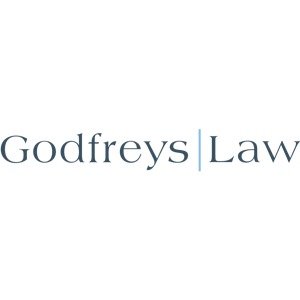Best Job Discrimination Lawyers in Christchurch
Share your needs with us, get contacted by law firms.
Free. Takes 2 min.
List of the best lawyers in Christchurch, New Zealand
About Job Discrimination Law in Christchurch, New Zealand
Job discrimination in Christchurch and throughout New Zealand is governed by the Human Rights Act 1993, the Bill of Rights Act 1990, and the Employment Relations Act 2000. These laws ensure equal employment opportunities and prohibit discrimination based on factors such as one's race, gender, sexual orientation, marital status, religion, disability and age.
Why You May Need a Lawyer
If you feel you have been unfairly targeted or mistreated at your workplace due to being part of a protected class, it may be critical to consult with an employment lawyer. Instances where you may require legal representation can include wrongful termination, lack of promotions, unequal pay, harassment, and other forms of work-related discrimination.
Local Laws Overview
The Human Rights Act 1993 is especially relevant to job discrimination in New Zealand. It prohibits discrimination based on any of the 13 protected grounds such as sex, marital status, religious belief, ethical belief, colour, race, ethnicity, disability, age, political opinion, employment status, family status, and sexual orientation. Furthermore, the Employment Relations Act 2000 provides a framework for employees to resolve disputes related to discrimination or any other employment-based issues.
Frequently Asked Questions
What constitutes employment discrimination in Christchurch, New Zealand?
Employment discrimination occurs when an employee or a job applicant is treated unfavorably due to their belonging to a protected category as outlined in the Human Rights Act 1993.
What should I do if I feel discriminated against at work?
You should document any instances of perceived discrimination and consult with an attorney specialising in employment law. You may also report the issue to your employer or human resources department, provided it's safe and feasible to do so.
What proof do I need to claim discrimination?
Evidence can be direct, such as discriminatory remarks, or indirect, like statistical evidence showing a pattern of discriminatory practices. Documentation of incidents and any conversation related to discrimination can be useful too.
Can I be retaliated against for filing a discrimination complaint?
No. The New Zealand Human Rights Act of 1993 protects individuals from retaliation for filing a discrimination complaint or for participating in an investigation into a discrimination complaint.
Can an employer justify discriminatory behaviour?
There are limited circumstances under which an employer can justify discriminatory actions, such as when a specific attribute is a genuine occupational requirement. However, such instances are rare and subject to stringent legal tests.
Additional Resources
For more information or advice on job discrimination matters in Christchurch, you can contact the New Zealand Human Rights Commission, Employment New Zealand, Community Law Canterbury or your local Citizens Advice Bureau. Remember, it's essential to consult with a legal professional if you feel you are a victim of job discrimination.
Next Steps
If you believe you've been a victim of job discrimination, it's essential to document all relevant incidents and conversations. Reach out to an employment law attorney who can help navigate your legal rights and obligations. Don’t hesitate to seek help from local service providers or organizations if you're uncertain or need further guidance.
Lawzana helps you find the best lawyers and law firms in Christchurch through a curated and pre-screened list of qualified legal professionals. Our platform offers rankings and detailed profiles of attorneys and law firms, allowing you to compare based on practice areas, including Job Discrimination, experience, and client feedback.
Each profile includes a description of the firm's areas of practice, client reviews, team members and partners, year of establishment, spoken languages, office locations, contact information, social media presence, and any published articles or resources. Most firms on our platform speak English and are experienced in both local and international legal matters.
Get a quote from top-rated law firms in Christchurch, New Zealand — quickly, securely, and without unnecessary hassle.
Disclaimer:
The information provided on this page is for general informational purposes only and does not constitute legal advice. While we strive to ensure the accuracy and relevance of the content, legal information may change over time, and interpretations of the law can vary. You should always consult with a qualified legal professional for advice specific to your situation.
We disclaim all liability for actions taken or not taken based on the content of this page. If you believe any information is incorrect or outdated, please contact us, and we will review and update it where appropriate.
















